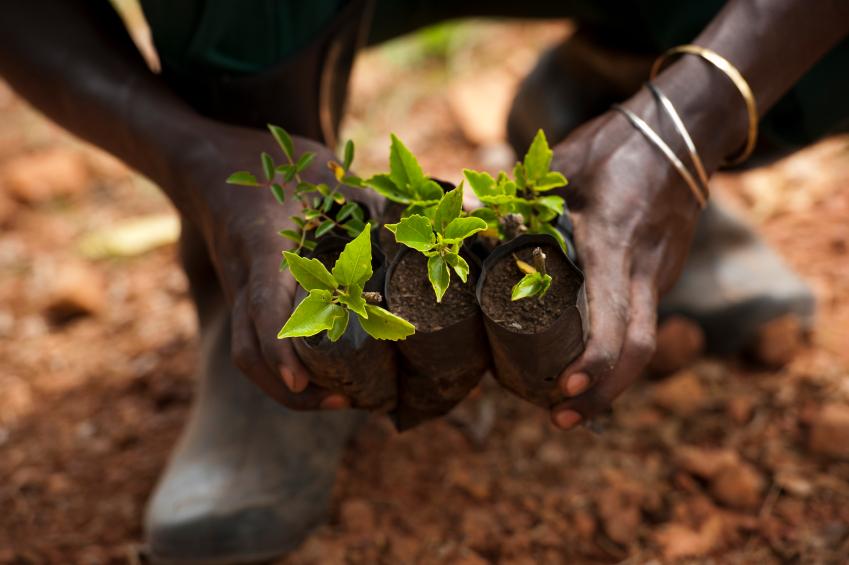The United Nations Food and Agriculture Organization (FAO) today announced a new $5 million initiative for rural parts of Guinea that pairs Ebola prevention messages with help for farmers whose livelihoods and food supply have been hurt by the epidemic.
In a statement today, the FAO said the agreement also involves the World Bank and Guinea's government. Unlike in Liberia and Sierra Leone, Ebola activity in Guinea has seen multiple dips and spikes, and community resistance incidents have continued to stall response progress there, especially in rural areas.
The International Federation of Red Cross and Red Crescent Societies (IFRC) last week sounded an alarm about ongoing attacks on its workers in Guinea and asked national and international partners to help with community sensitization efforts to calm fears and dispel myths about Ebola.
Bukar Tijani, the FAO's assistant director-general and regional representative for Africa, said in a statement, "The funding is a much needed contribution towards building the resilience of communities whose already precarious situation of chronic food insecurity has been exacerbated by Ebola-related disruptions to farm labor, agricultural production and food markets."
The project is slated to include a social mobilization campaign to target 30,000 households with hygiene kits and information on how to prevent Ebola transmission in rural areas.
The FAO also said 15,000 families will benefit from interventions to protect their livelihoods, including improved seed, fertilizers, and equipment for the upcoming planting seasons. Farmer field schools will be offered to empower farmers with more technical knowledge, it added.
Targeted groups include young workers, women and hunters who sold bush meat before authorities banned it, and women involved in rice processing, the FAO said.
An assessment by the FAO and the World Food Program projected that about 470,000 people in Guinea may face food shortages by March due to the Ebola epidemic.
Other steps planned
In related developments, the United Nations Mission for Ebola Emergency Response (UNMEER) detailed more social mobilization activities planned for the region in parts of Liberia's Montserrado County and in Marbigi County, where cases were recently detected.
Social sensitization projects through the media have targeted several problem areas in Guinea, and recent activities there and in Liberia and Sierra Leone involve religious leaders in promoting safe burials and dispelling myths about Ebola.
36 new cases
The World Health Organization (WHO) said today that the number of confirmed, probable, and suspected Ebola cases in the outbreak countries has increased by 36 cases since yesterday, to 23,218 cases. It put the number of deaths at 9,365, an increase of 12.
Today's totals include data as of Feb 15 from Sierra Leone and Guinea and as of Feb 12 from Liberia.
Elsewhere, a health worker from the United Kingdom is being evacuated from Sierra Leone for observation after possible exposure to the Ebola virus, Public Health England (PHE) said in a statement today. The PHE said the worker doesn't have symptoms but will be assessed and monitored for the 21-day incubation period.
The PHE said the health worker had a possible low-risk exposure while taking care of personal protective equipment in a frontline care setting.
See also:
Feb 17 FAO statement
Feb 17 UNMEER update
Feb 17 WHO update
Feb 17 PHE statement

















